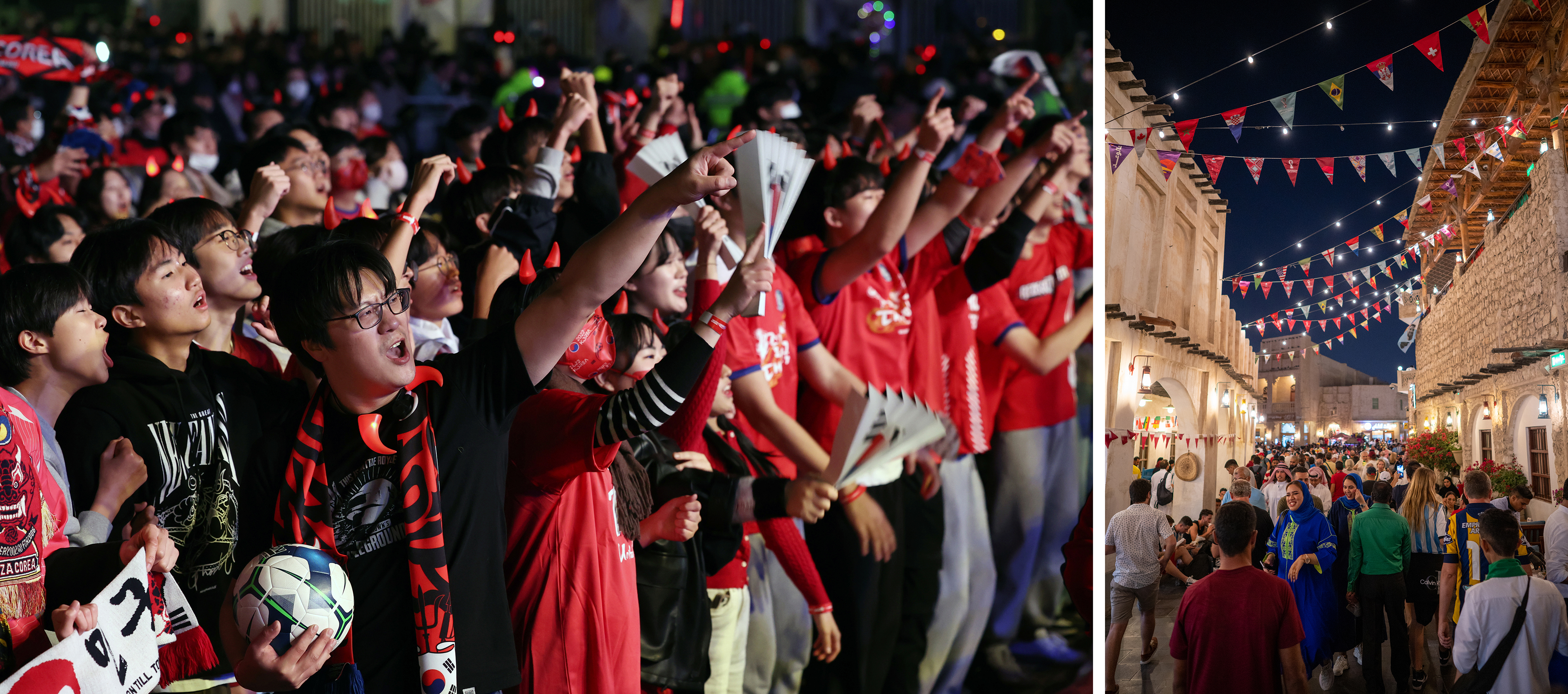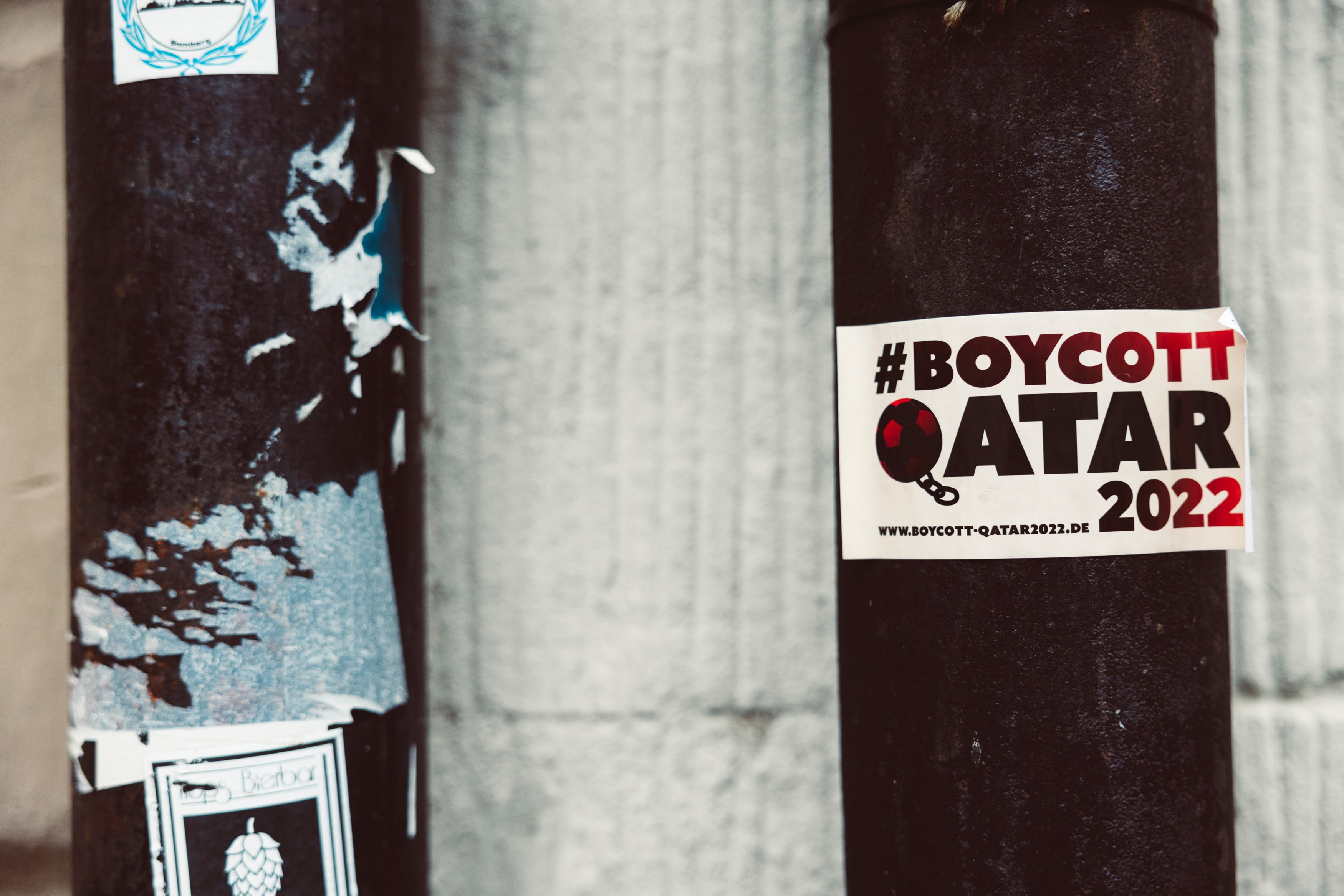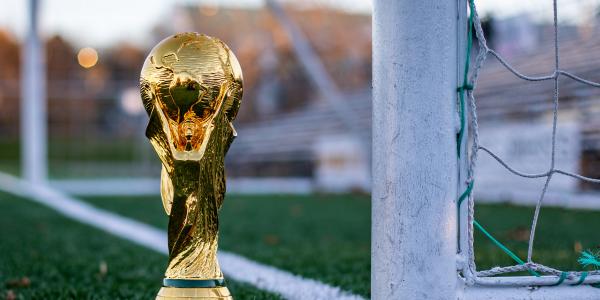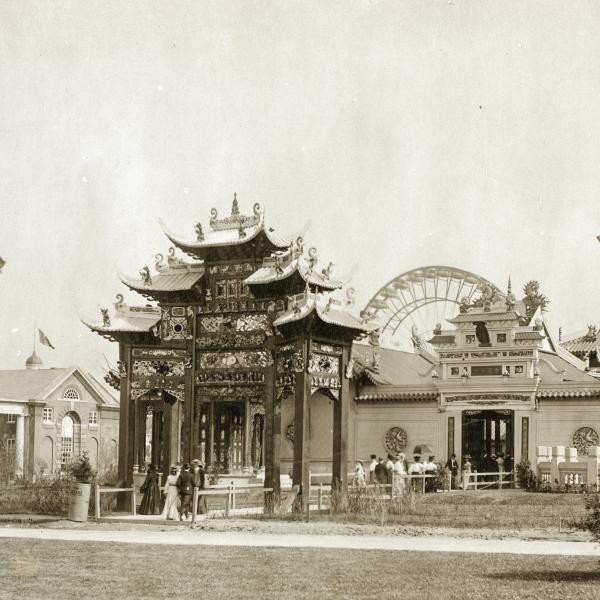Sunita Parikh is associate professor of political science and co-convenor of the Sports and Society Reading Group.
How can we begin to make sense of so many contradictions and so much ambivalence? The most criticized World Cup in decades produced the most exciting final in decades, as well as one of the most exciting tournaments most of us can remember. We saw fantastic performances from late-career stars, youngsters and teams. Around the world people fell in love with Morocco, a team most had known nothing about before the tournament started. Morocco’s players took fields closer to home than ever before, and they advanced farther than every African team before them. There were a few “where is our beer?” stories, but criticism toward Qatar’s about-face on liquor in stadiums died down quickly, in part because the atmosphere that resulted was so enjoyable. We lost stories about drunken violence and gained more stories about happy fans.
In the end, two of the best teams in the world, both with legendary football histories, played for the championship. That wasn’t a surprise. But no one predicted how thrilling the game itself would be. Kylian Mbappé scored a hat trick for France and was named Man of the Match. But France lost. Lionel Messi finally captured the one prize that had eluded him, and Argentina’s team won the World Cup for the first time in nearly 40 years.

The success and spectacle of this World Cup lets us forget that international football is a long way from healthy. The sport reflects the race for endless revenue for the governing bodies and side payments to the people who choose the hosts. Rich men have always bought sports teams, but now rich countries are buying them, upending competitive football in the richest and most powerful European leagues. There’s no way this won’t have knock-on effects for nation-based competitions, especially when the World Cup expands from 32 to 48 teams in 2026. Athletic talent will not only be spread thinner, it will have fewer opportunities to develop because the leagues which nurture that talent are becoming less competitive.
To return to Qatar: Why were we playing there? It was well past time to bring the tournament to the region, but why did Qatar even want it? For the same reason most countries want prestige international sporting events and the Olympics: for greater legitimacy and influence. At the trivial level, a lot more people can find Qatar on a map now and can tell you what the capital is. At a less trivial level, prestige sporting events have provided opportunities for Qatar to increase its soft power and strengthen its position in the region. Qatar has built stronger foreign policy connections to European and North American nations and improved its standing relative to regional rivals. In purely financial terms the World Cup was a loss-maker for the nation, but unlike most World Cup hosts, Qatar can afford to take the hit in return for increased status, influence and power.
When global sporting events are held in familiar places we tend not to see as clearly the contradictions between the beauty of sport and the ugliness of the businesses that control it.

When global sporting events are held in familiar places we tend not to see as clearly the contradictions between the beauty of sport and the ugliness of the businesses that control it. But when the venue is more “foreign” to us, in every sense of that word, these paradoxes come to the foreground. Sportswashing, i.e., the laundering of reputation through sponsorship or ownership, is easier to perceive when a city without a winter sports tradition hosts the Winter Olympics, or when a non-footballing nation wins a World Cup bid. But Qatar isn’t a one-off; it’s part of a much larger and longer history of pursuing political and economic ends through gorgeous, glorious sporting events.
In the last decade, both Russia and China were criticized when they hosted the Olympics and World Cups, and there were partial boycotts by companies and political leaders. Perhaps because both had hosted before, both are large and powerful nations, and the criticisms were long-standing and well covered, the sportswashing coverage became part of the overall picture. In Qatar’s case there is a convergence of several factors: widespread unfamiliarity with the nation itself, the kafala system of labor and the extreme inequality between most migrant workers and Qatari citizens, and Qatar’s lack of football history and culture. Journalists and other writers found themselves having to educate their readerships about Qatar at the same time that they covered the runup to the tournament and the tournament itself, and if they “stuck to football” they were criticized for participating in sportswashing. My guess is that when Paris hosts the next Olympics and the U.S., Mexico and Canada host the 2026 World Cup, the coverage will not ignore the negative aspects of these multibillion-dollar spectacles, but it will blend into the larger perspective once again.
I’ve used “we” throughout this post because it’s important for fans to acknowledge that this system, comprising both beautiful parts and ugly parts, is one we participate in. As my colleague Noah Cohan has observed, we “average unbeautiful watchers” create narratives that sustain us and also the sporting events we love. The magic of witnessing a thrilling sporting event, an experience we share with like-minded spectators in the billions, allows us to pretend for a day, a week or even a month that it is separated from the real world rather than a reflection of it. I admire football fans who decided to boycott the tournament and stuck to their resolutions, but I couldn’t manage it. The lure of Wales’ first World Cup qualification since 1958, an exciting young U.S. team, and the probable last hurrah for Lionel Messi were too alluring.
Headline image by Rhett Lewis on Unsplash





